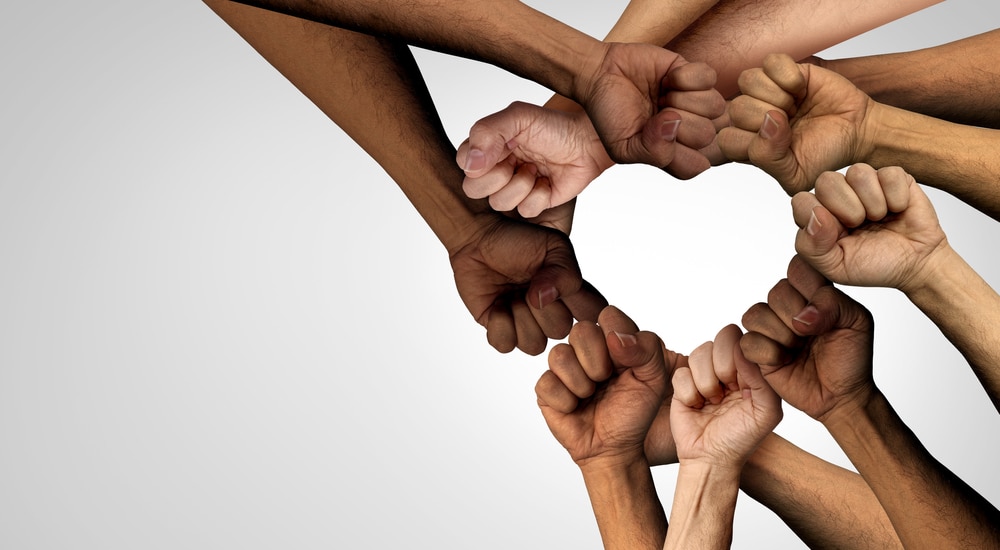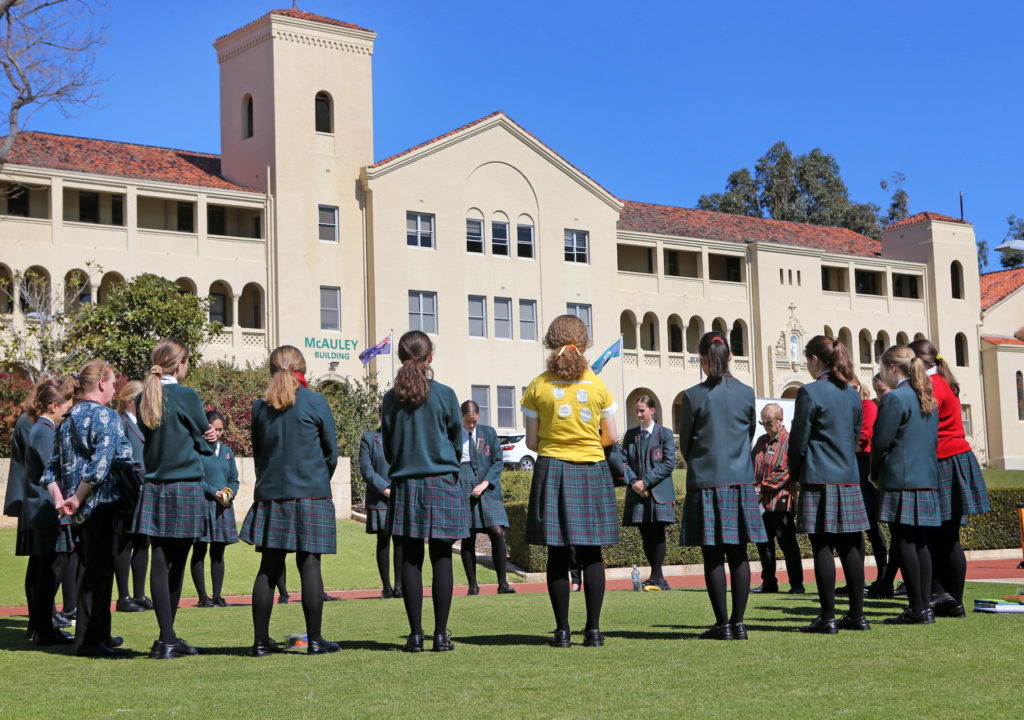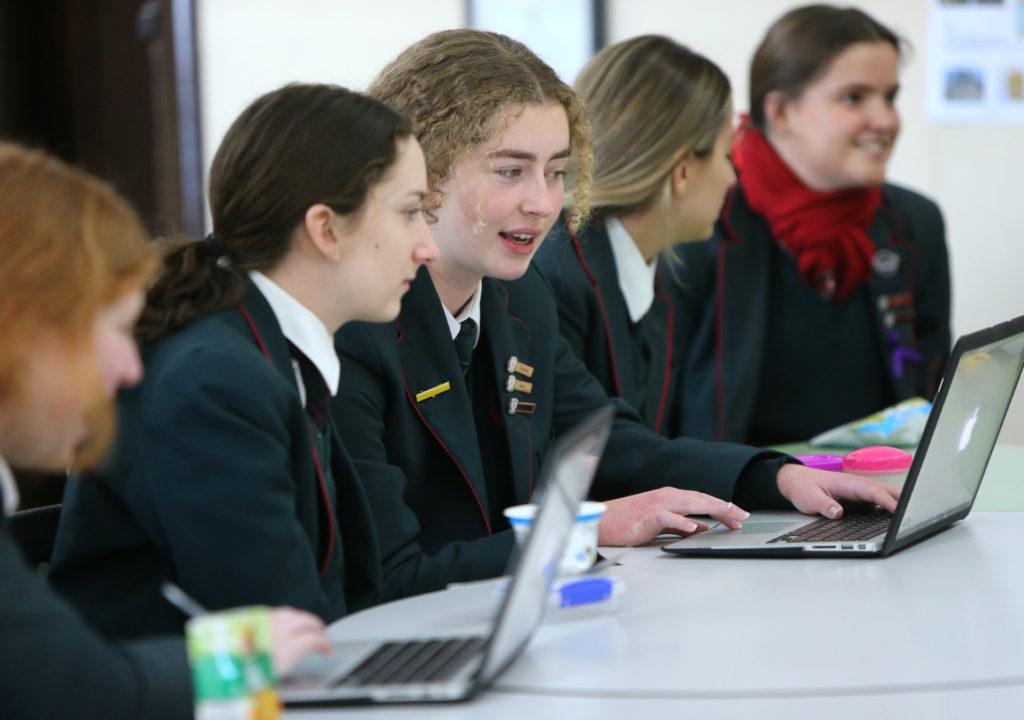Mercy Value 2021 – Act Justly

The concept of justice is often misunderstood. While some believe it is about equality for all; others argue that equity is a more accurate understanding of the concept. Whatever our understanding, most people have an innate sense of what is just and what is not.
DEFINING JUSTICE
In our Catholic Mercy context, we define justice as ‘promoting respectful relationships, equity for all and care for the planet’. This understanding not only recognises fairness for all but also embraces protection of our fragile earth.
The daily news is filled with countless examples of war, famine, racism, gender inequality and other wrongs. The most vulnerable in society are often exploited for monetary gain. Many suffer unjust treatment, and too many have no voice. Additionally, our indiscriminate demand for more resources puts unsustainable strain on the earth.
SCALES OF JUSTICE
Wouldn’t it be wonderful if no inequalities existed in the world? Can we even imagine a world where all relationships were harmonious, and everyone took individual and collective care of each other and the earth?
Perhaps this is wishful thinking but, is it really too unrealistic to dream of a world where the ‘scales of justice’ are balanced? A world where everyone enjoys equal opportunity and care for our planet features highly on everyone’s agenda.
While many of us are acutely aware of the discriminatory treatment of others and the planet, we may at times feel overwhelmed by the enormity of the situation. We erroneously believe that there is nothing we can do to remedy the situation. Well, this is where we are wrong! On our own, yes, we may accomplish little to nothing, but when we combine our efforts, we have the ability to effect change. This is a powerful realisation!

UBUNTU
So, what does justice look like and what does equality have to do with it? I propose that justice has more to do with equity than equality. Equality implies that everyone gets the same resources, irrespective of their needs. Equity on the other hand infers that everyone receives the resources according to their needs. This seems like a more unprejudiced approach.
I’d suggest that while this is fairer, giving people what they need, while reasonable, is only a temporary fix. We need to do more! We must attempt to remove the barriers that caused the injustice in the first place. The old adage: Give a man a fish and he can eat for a day; teach him how to fish and he can eat for a lifetime; never rang truer.
This is summed up beautifully in the Bantu philosophy of ‘Ubantu’: ‘I am because we are’.
Ubuntu teaches that we are all connected to the earth, and thus to each other. It is this invisible connection which gives us our humanity. In simple terms, the philosophy teaches that ‘when you are happy, I am happy. When you are sad, I am sad’. We act as a mirror. ‘What I see in myself, I see in you. What I owe to myself I also owe to you’. In essence it is a joining of hearts where everyone works to ensure everybody has the means and skills required to access what they need.
Embracing Ubuntu enables one to observe the imbalances and unfair structures that exist in society. Moreover, Ubuntu inspires us to work with others to remedy the wrongs. Since the ‘scales of justice’ are tilted more heavily in favour of the ‘haves’, Ubuntu brings us to the recognition that the ‘have nots’ are our brothers and sisters. The acknowledgement of our common humanity then motivates us to eradicate the impediments that prevent some from full participation in society.

TAKE ACTION
Working for a more just world and better care for our planet, is a necessary response to the Gospel of Jesus, and central to our Catholic Mercy identity. However, it takes courage, time and effort. So where do we start? The following suggestions might get us going.
- Self-awareness: Recognising that ‘I am because we are’ is crucial to effect change.
- Advocacy: Speaking for those who are voiceless.
- Empowerment: Providing people with the necessary skills needed for full participation in society.
- Social Awareness: Being observant to the injustices that occur and raising awareness.
- Petition: Lobbying government officials to examine societal structures that marginalise others.
- Act Justly: Everyone has inherent dignity and stands equally before God. This calls us to interact respectfully with others at all times.
Jesus said, ‘I have come so that you may have life and have it to the full’ (John 10:10), and this means everyone. Our mission is therefore to do all we can, wherever we can, for those who cannot live life to the full. Nothing less is expected of us!

The Power of Expectations in Shaping Student Success – Jennifer Oaten
Discover the transformative impact of expectations on student success. Learn how belief shapes outcomes in education and beyond.

Weekly Wrap Up: Term 2, Week 1, 2024
Term 2 has kicked off with a bang! We enjoyed the Year 11 Father-Daughter evening, celebrated Earth Day, and welcomed Dr. Mark Williams.

Inspiring Change: Earth Day 2024
Our Earth Day celebration this week was a powerful reminder of our collective responsibility to protect our planet for future generations.
- ConnectingLearning2Life, Featured
Author: Santa Maria College
Santa Maria College is a vibrant girls school with a growing local presence and reputation. Our Mission is to educate young Mercy women who act with courage and compassion to enrich our world. Santa Maria College is located in Attadale in Western Australia, 16 km from the Perth CBD. We offer a Catholic education for girls in Years 5 – 12 and have 1300 students, including 152 boarders.






